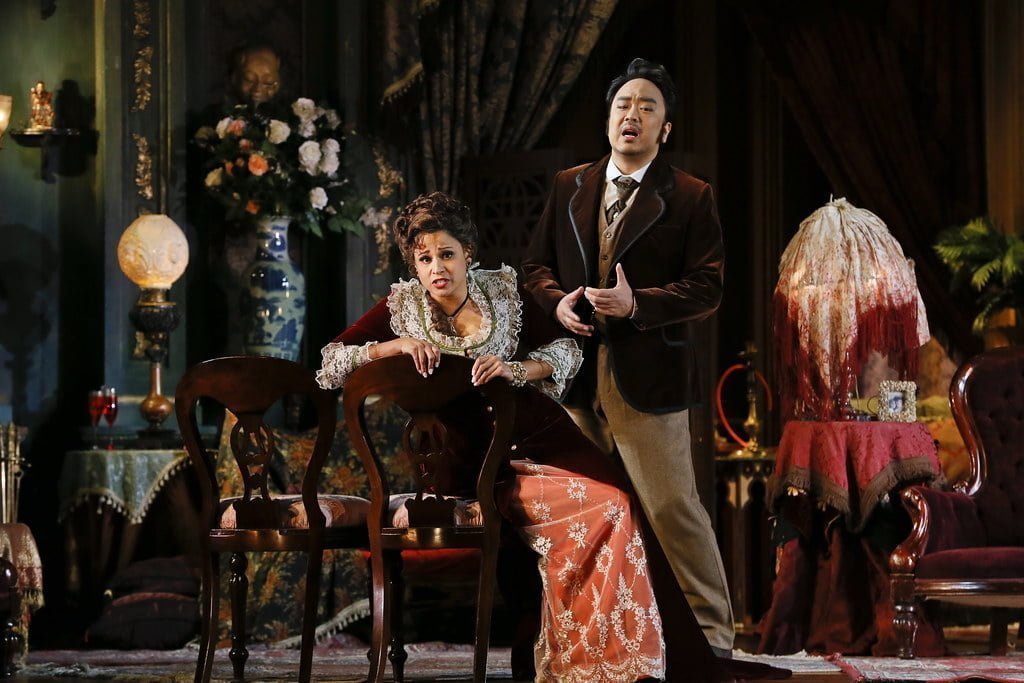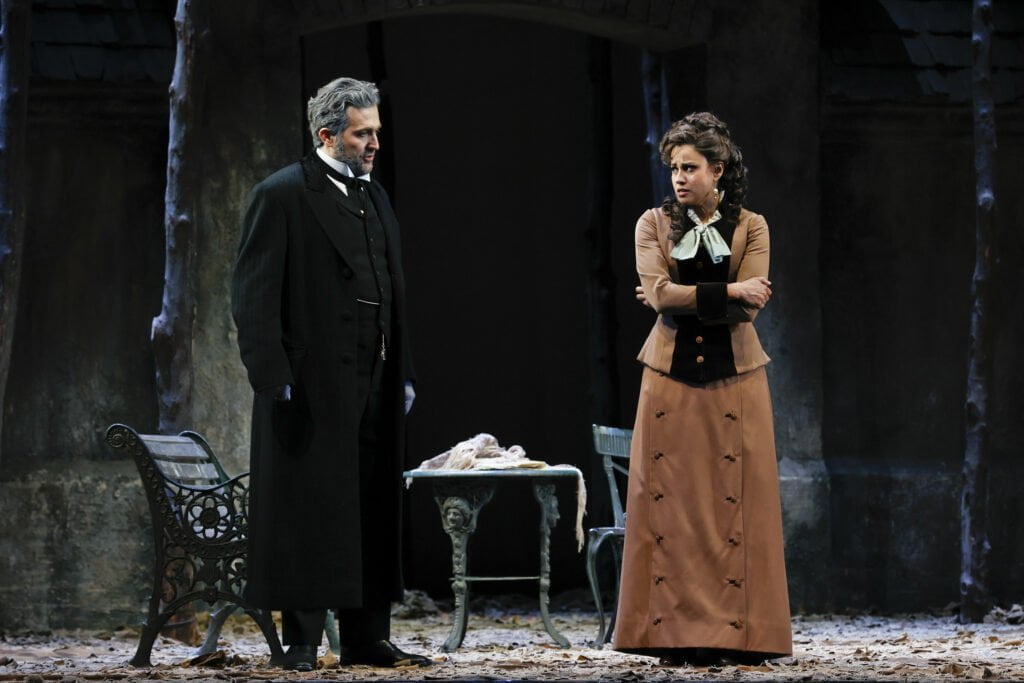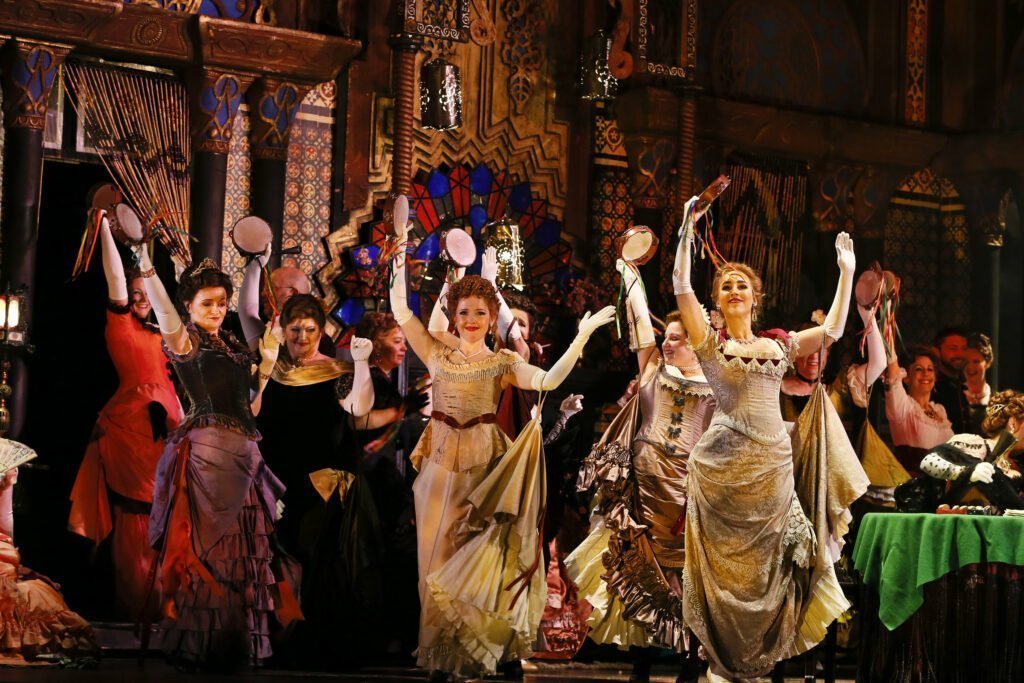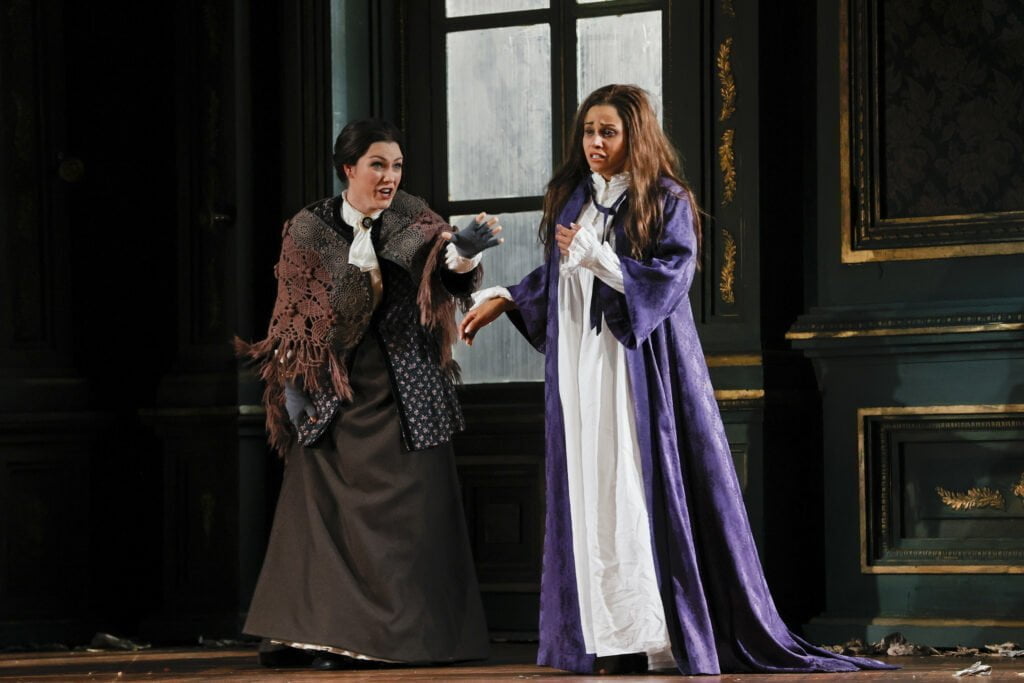LA TRAVIATA. Opera Australia, Wednesday May 4, 2022. State Theatre, Arts Centre Melbourne. Music by Giuseppe Verdi. Libretto by Francesco Maria Piave. Directed originally by Elijah Moshinsky. (Revival rehearsed by Constantine Costi.) Conducted by Renato Palumbo.
Reviewed for Opera Gazet by David Meadows. 4 may 2022.
You can have any review automatically translated. Just click on the Translate button,
which you can find in the Google bar above this article.
The late Elijah Moshinsky’s venerable Opera Australia production of Verdi’s mid-career warhorse is sufficiently ubiquitous in the national company’s roster at this point that it seems to have settled comfortably into the role of “showcase vehicle” – a handy platform on which to feature at least one extant or rising star and give them a chance to shine. The ideal production sees all three principal roles equally well-served, but since each of them boasts at least one magnificent earworm to delight neophyte and cognoscenti alike, the evening remains worthwhile even if only one of them delivers the required goods. On Wednesday night, two of them stepped up.

Stacey Alleaume steals the evening hands down, and if she wasn’t the major reason for this revival before opening night, she certainly is now. After first assuming the role of Violetta Valéry in 2018, and then again in last year’s Opera on the Harbour production in Sydney, it appears to have become something of a signature role for her. It’s easy to see – and hear – why. Hers is a Violetta of global potential. Musically and dramatically, she inhabits every moment, and this puts us at tremendous ease, knowing that this most demanding of roles is in safe hands. It’s a rare gift, and at the curtain call on opening night, a vocal Melbourne audience rose to their feet in gratitude. There were one or two melodramatic provincialisms to be found in her dramatic realization, but these were mercifully few, and likely a result of rehearsal director Constantine Costi’s frustratingly loose hand, generic blocking, and limited dramatic insight (more on this anon). She nevertheless managed to chart a moving emotional course across the evening, and her singing was faultless from go to whoa.
Mario Cassi as Germont père gave equal comfort to the opening night audience, singing with élan and acting with commitment. He, too, was not immune to a few provincial indulgences along the way (his protracted cadenza at the conclusion of “Di Provenza” bordered on crass), but he was otherwise impeccable, with a full, evenly produced baritone. “Ah! dite alle giovine” was an absolute highlight, with he, Alleaume, and conductor Renato Palumbo doing full, glorious justice to one of Verdi’s most ravishing duets. It was appropriately received by a grateful audience.


Ho-Yoon Chung was, sadly, over-parted as Alfredo. His light lyric tenor is a pleasing enough instrument, but it took him all night to warm up to the required level; by the time we got to “Parigi o cara” he was ready to start the show. He was also the least effective actor. Yes, the show is a melodrama, but less is frequently more.
Among the supporting cast, Alexander Sefton was a commanding Baron Douphol, and Danita Weatherstone a sympathetic Annina. The remaining cast were admirable.
The Opera Australia chorus also performed admirably despite the often static, “stand & deliver” nature of their alleged blocking. Costi’s credits suggest more artistry than was on display here, but as the rehearsal director merely, he was presumably bound to the production book and unable to offer too much in the way of innovation or insight. Given that this revival comes barely a year after Moshinsky’s sudden passing, a necessarily overly reverential approach may also have been a factor. The blocking was occasionally less than rudimentary and required a good deal of “take it as read” good faith.

The traditional nature of the production, with its opulent old-school sets and costumes, also, sadly, gave us the PG version of the supposedly scandalous debauchery that underpins Germont père’s anxiety about his family’s reputation, coming across more as “middle class bankers gone mild” than the kind of orgiastic excess that would justify the man’s elemental concerns over his daughter’s social mobility and marriage cachet. That one guy at the back during the Piquillo chorus, dancing topless while swinging his shirt over his head, was the closest anything in the production got to the kind of truly threatening decadence the drama requires.
After a leisurely amble through the overture, conductor Renato Palumbo gave us a sympathetic, nicely deliberate pacing of the score, bringing some ravishing sounds out of Orchestra Victoria, and more than ably supporting his singers.
